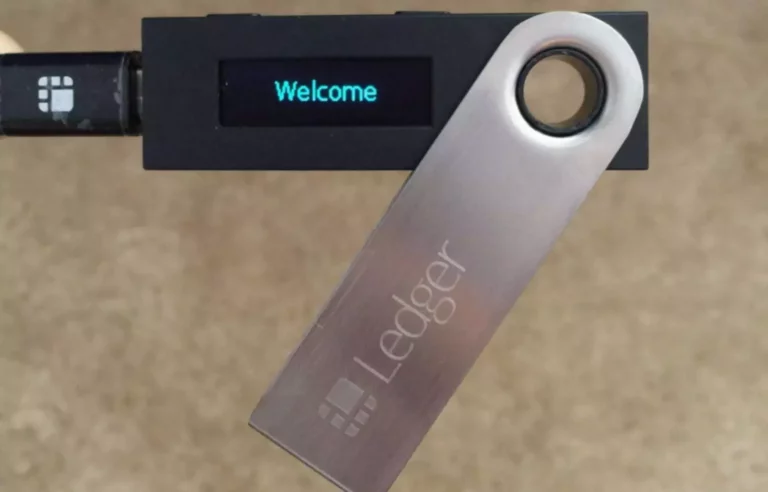While a custodial wallet lessens personal accountability, it requires belief within the custodian that holds your funds, which is often a cryptocurrency change. As its name suggests, a custodial wallet is where a third get together takes custody of personal keys on behalf of customers. The third get together has full management over the crypto property, assuming the duty of managing the user’s pockets key, signing transactions, and protecting the user’s crypto assets.
Transaction costs are also cheaper because there are few or no commission-seeking intermediaries. For a quick guide on whether customers should maintain their own crypto key versus letting someone else take responsibility, learn on. Typically, the private key’s represented by a 12 to 24-word restoration phrase.
Since non-custodial wallets aren’t managed by a third party, you are liable for your safety and might take measures to protect your funds. A custodial crypto pockets refers to a crypto wallet in which a person’s personal keys are held by a third-party service supplier. In this case, the user relies on the custodian to make sure the security and administration of their cryptocurrency holdings. Non-custodial wallets are more flexible because they will normally operate both online and offline. A non-custodial crypto wallet can operate from an online browser or a cellular application.
Greater Safety Measures:
This means that they will access their cryptocurrency at any time, and they do not have to fret a few third party managing their funds. Additionally, non-custodial wallets are typically safer, as the person is in cost of their private keys. However, there are also some disadvantages to utilizing a non-custodial wallet.

Although users are taking the chance of shedding their funds into their own palms, non-custodial crypto wallets provide better safety against an information breach than custodial wallets. Some non-custodial wallets require internet connectivity to function, however, so offline hardware wallets are often the safest possibility on this regard. A custodial wallet is a kind of cryptocurrency wallet that’s managed by a 3rd celebration. In this case, the third party takes custody of the user’s cryptocurrency, and the person does not have control over their personal keys. This implies that the third celebration is answerable for securing the user’s cryptocurrency and making certain that it’s safe.
Non-custodial wallets give you full control over your cryptocurrencies and private keys, which means they are not reliant on third-party companies. This control allows you to manage your funds as you see fit, corresponding to transferring, storing, or trading them without restrictions or limitations. As the aforementioned sections reveal, each custodial and non-custodial wallets have their own advantages and downsides. Blockchain customers can both delegate storage and private key management to a 3rd celebration or turn into the sole custodian of their private keys. Custodial wallets require an internet connection to succeed in centralized servers and access blockchain knowledge. Thus, custodial crypto wallets can only operate online, making them susceptible to cyber assaults.
The Cryptocom Defi Wallet
This non-public secret is used to sign and verify transactions on the blockchain network. You can use your non-custodial wallet through a software program software or a web-based interface, and you’ll view your balance, ship and obtain crypto, and even manage your pockets settings. In case of loss of non-public keys or different points, custodial wallets usually have processes in place that will help you recover your funds in case any problem happens. One of the advantages of using custodial wallets is that they usually provide buyer support services to their users. The second pockets kind to think about is a non-custodial different or self-custody wallet. This sort of crypto wallet enables individuals to store, handle, and access their very own digital currency without requiring assistance from a third party.

There’s no proper or wrong reply as to which wallet type is ‘best’; rather it comes down to non-public desire and what you plan to do with your crypto holdings. If you’re a beginner, you must begin with a custodial pockets, and then as you turn into more experienced, you’ll find a way to venture right into a non-custodial one. When selecting whether or not to make use of a custodial or non-custodial wallet, you have to know that there is no proper or wrong option.
Custodial Vs Non-custodial Crypto Wallets
However, the accountability of maintaining your wallet secure falls on your shoulders. First be completely sure to create a back-up of the 12-word restoration phrase, if you lose this phrase you won’t be able to access your funds in the chance that your system is lost or stolen. Ledger is a longtime and reputable company recognized for its flagship non-custodial wallets. These wallets can work together with a number of blockchains via the Ledger Live desktop app, providing customers comfort and top-level safety. Therefore, you can easily carry it round as a safe non-public key to access crypto belongings from wherever.
They supply an option to put cash into cryptocurrency that doesn’t require managing keys or transacting on the blockchain. They do, nonetheless, charge higher charges and only present exposure to a fraction of the cryptocurrencies and buying and selling pairs offered on exchanges. With a non-custodial pockets, you’ve sole control of your private keys, which in flip control your cryptocurrency and prove the funds are yours. While these wallets provide excellent security, they may be less handy than other pockets choices as they require physical entry and PIN entry. However, if you have vital cryptocurrency investments and prioritize safety, a hardware wallet is a perfect choice. A hardware pockets is an exterior gadget that shops your personal key and cryptocurrencies.
Ultimately, it is as much as the person, and the non-custodial Crypto.com DeFi Wallet is considered one of many options to think about. On the other hand, a non-custodial wallet is a type of cryptocurrency wallet the place the person has full control over their personal keys. This signifies that the consumer is responsible for securing their cryptocurrency and ensuring that it’s secure. When using a custodial wallet, you essentially entrust the safety of your funds to a different particular person or entity. Such occurrences, like those skilled by users, increase concerns concerning the reliability of custodial wallets. However, they also require customers to be extra answerable for their crypto wallet security.
- With a non-custodial pockets, you have sole management of your non-public keys, which in flip management your cryptocurrency and prove the funds are yours.
- Some non-custodial wallets are browser-based, however there are a few different varieties out there.
- Following our latest launch, Zumo now gives you the freedom to determine on for your self which way (or mixture of ways) you want to handle your cash.
- Here are another key distinction about custodial wallet and non-custodial pockets you want to know earlier than making a call.
- Your personal key, then again, capabilities similarly to a secret password in that it indicators transactions and grants access to your wallet.
- Non-custodial pockets users instantly authenticate transactions without involving centralized entities, so they’re normally quicker.
Instead of getting custodial access to your funds, a service supplier gets full management of your money. The Crypto.com DeFi Wallet is a non-custodial wallet that lets users easily manage and retailer their crypto, as nicely as provides secure entry to a full suite of DeFi companies all in one place. Unlike with a centralised custodial solution, users have full control and possession of their crypto after they use Crypto.com DeFi Wallet. The major benefit of a non-custodial pockets is that the person has complete control over their cryptocurrency.
Faqs About Custodial Vs Non-custodial Crypto Wallets
A non-custodial pockets, or self-custody wallet, is where the crypto owner is fully responsible for managing their own funds. The person has full control of their crypto holdings, manages their very own personal key, and handles transactions themselves. The alternative between the https://www.xcritical.in/ two kinds of crypto wallets is dependent upon safety considerations, convenience, and luxury with managing non-public keys. Some software pockets suppliers also offer browser extensions for Chrome and Firefox.

Some, like Coinbase, do offer separate standalone non-custodial pockets apps. The familiarity of in style exchanges may play a think about deciding the proper of pockets for you if you’re already comfy utilizing one trade or one other. A liquidity disaster just like the one at Celsius could also jeopardize investor funds. And since custodial wallets cannot function offline, they are extra susceptible to hacks and online theft. Users need to finish Know Your Customer (KYC) and Anti Money Laundering (AML) varieties for security and regulatory compliance.
The main drawback of non-custodial wallets is that customers have to be liable for their personal keys’ security. Losing or compromising non-public keys may outcome in the irreversible loss of funds. A cryptocurrency wallet is a software or hardware medium that allows you to interact with a blockchain network. On the opposite hand, if you use a custodial wallet, a third get together manages your private keys.
A disadvantage of using non-custodial wallets is their accessibility and ease of use. They are sometimes less user-friendly and could be difficult for first-time cryptocurrency holders. With non-custodial wallets, you are solely liable for your keys and should take your personal precautions when handling them. On the other hand, the custodial wallets deliver some challenges, like suddenly locking users out of the wallet. On the other hand, non-custodial wallets provide larger security and control but could require more effort and accountability in your part.
